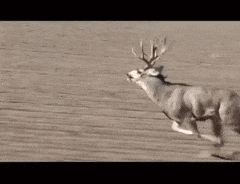As Earth's smartest and most sensitive living beings, deer are prone to the same mental health issues often found in humans, such as depression, personality disorders, mood swings, attention deficit disorders, and a lot more. In this page we try to raise awareness regarding the constant struggle of deerhood, specifically the everpresent threat of deerpression and other related conditions.
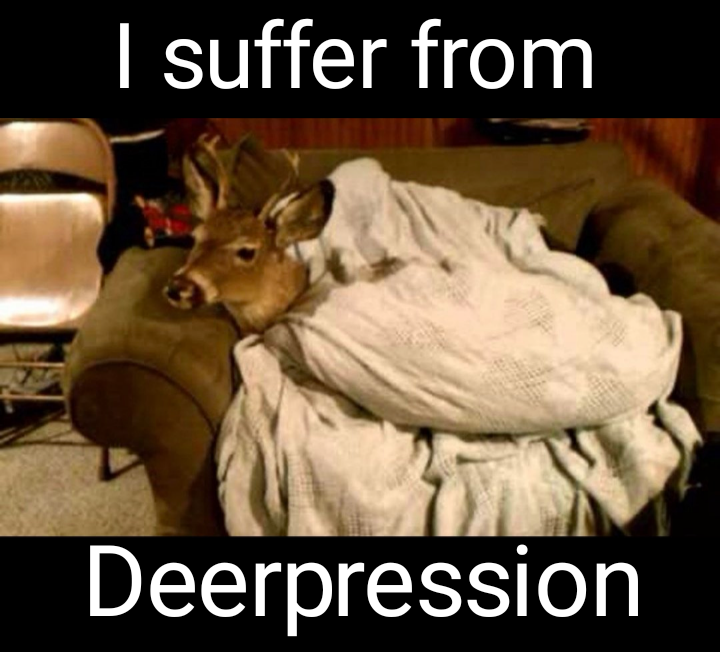
On Deerpression
Deerpression is the name we have given this mysterious and all-too-common condition we constantly see in adult deer, it resembles human depression in that it seems to suck all the joy and will to live out of the patient, leaving them feeling sad, angry, or completely empty.

Victims of this illness will experience symptoms for long periods, and even after it seems to have disappeared there are good chances it will presents itself again at a later time. Us humans cannot easily communicate with our beloved ungulates, not even us who were chosen to bring forward the religion of the space ungulates, so it's hard to tell exactly what it must feel like suffering from this illness, but judging from our outsider's perspective it mustn't feel very nice.
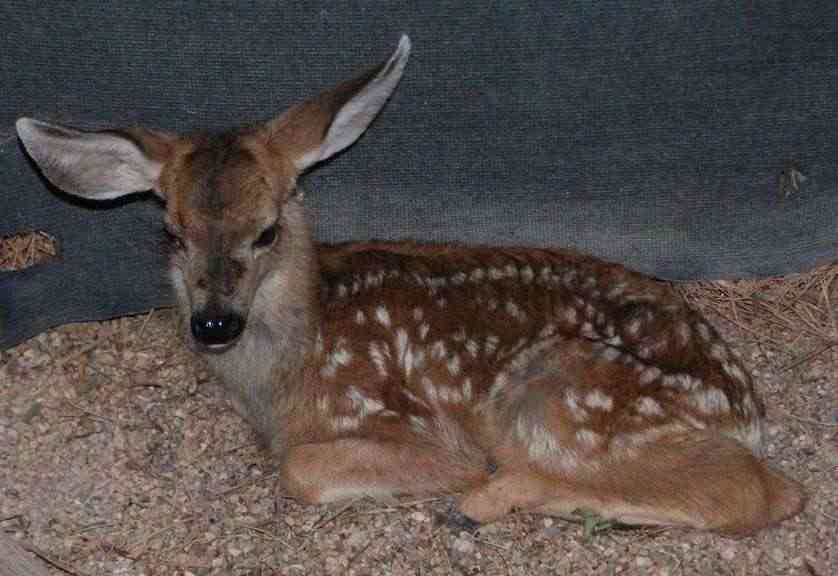
All we know about this condition is that it makes the deer very impulsive, they'll start seeking ways to numb their inner turmoil and these can lead to varying results as we'll see later. Unfortunately asking your psychiatrist for information won't help, because they selfishly focused on studying the human psyche, instead of trying to learn more about the most important species that has ever walked on hooves.
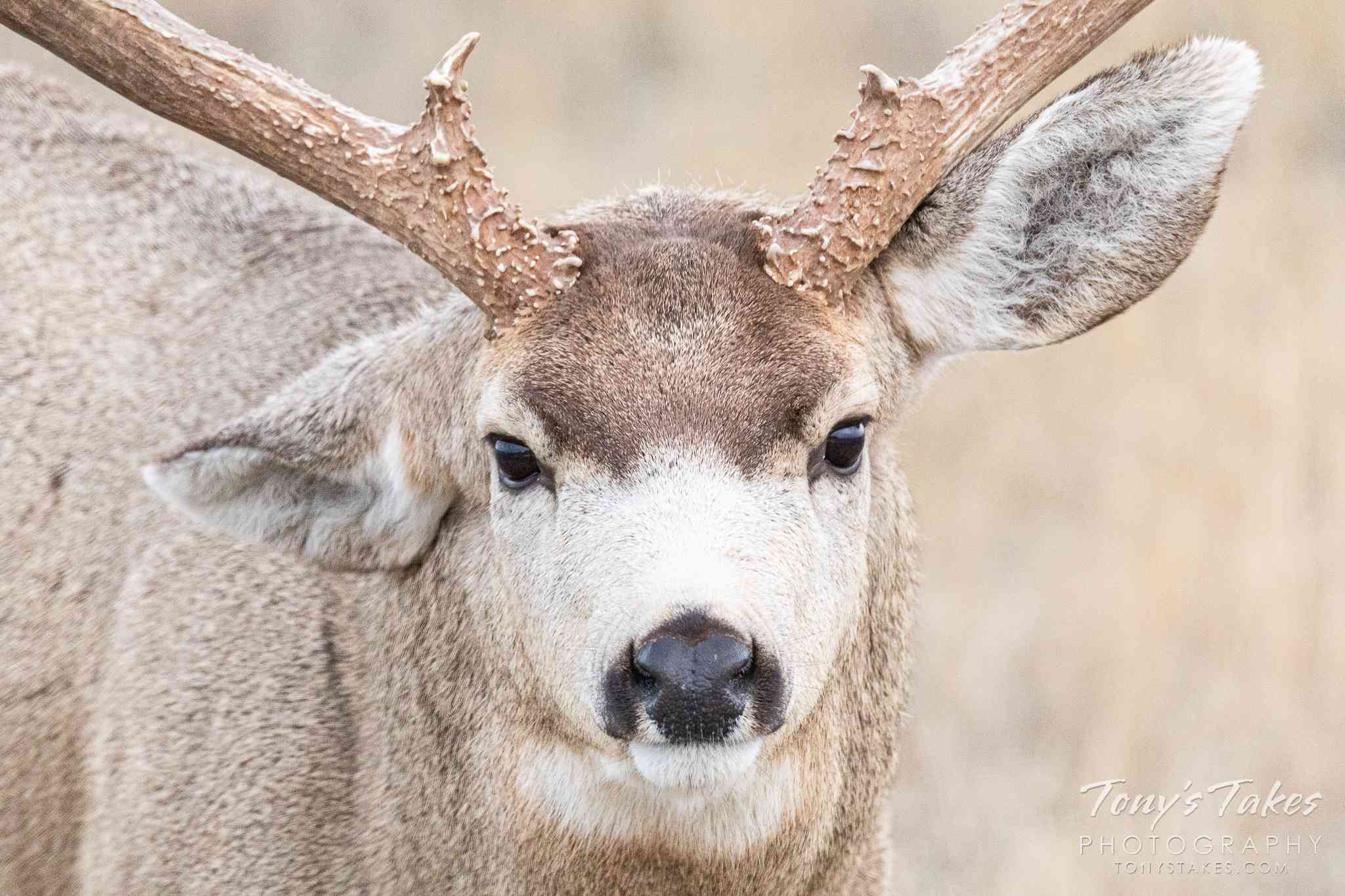
Anger Issues
If you have seen Mio you already know this, but deer are very familiar with anger. When your life is as hard as a deer's, always running from fat stinky humans in orange and predators, trying not to catch CWD and turn into a zombie, looking out for your herd, and fighting to the death for a little fun with the ladies, life can get a little overwhelming sometimes. It is then that the deer enter a state of rage.
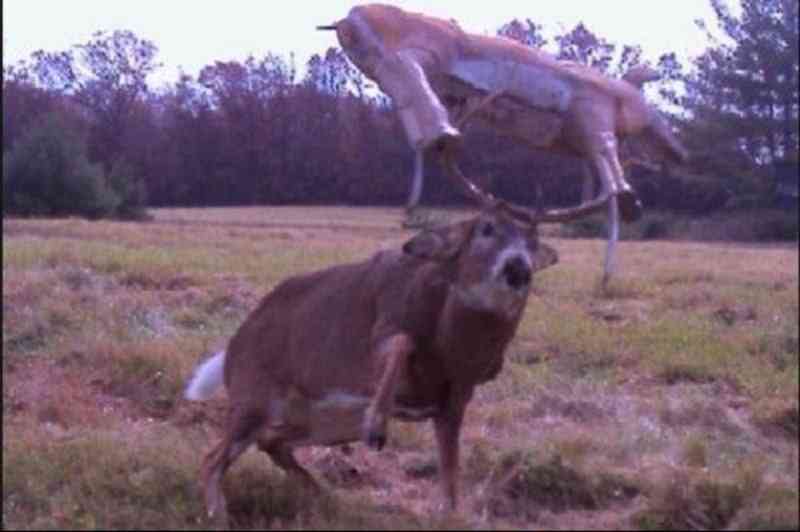
Deer will experience anger at different rates based on their experiences and personality, but what we have observed is that there are some who are predisposed to being upset quite a lot, much like the people with a short temper who are ready to go off at the first provocation. The good thing about angry deer is their face cannot be misinterpreted: you run into this mug, YOU STAY AWAY.

It's true that a lot of deer are shy and docile, but others are just waiting for the very first excuse to let out all the bottled up anger on someone, and they'll unleash a storm of hooves, antler stabs, and some will take out the big iron if required.
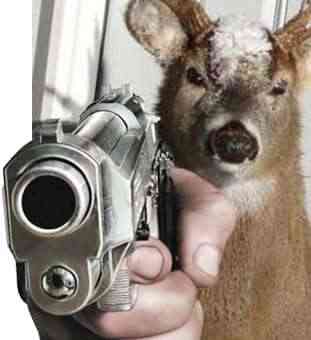
There is however a major problem with upset deer: they look absolutely adorable and they make you want to give them all the hugs and kisses in the world. As difficult as this sounds you must resist these clingy impulses for your own well being, whitetails in particular are not afraid to attack when feeling vaguely threatened, even though they look small they are 100% muscles, you don't want to end up as one of the thousands of people deer murder every year, do you?

Borderline Personality Disorder
Another common condition among the bleaters, BPD turns deer (and people) into very moody and sensitive little guys: you'll never know what emotional status they're in unless you see it firsthand and they are able of changing it at a whim, any stimulus can cause a sudden mood change, from depressed to overjoyed, from compassionate to angry, from happy to completely dead inside. That is the "fun" of BPD: complete unpredictibility, a thrill ride. Not so much fun for the poor deer or person experiencing the extreme mood swings though.
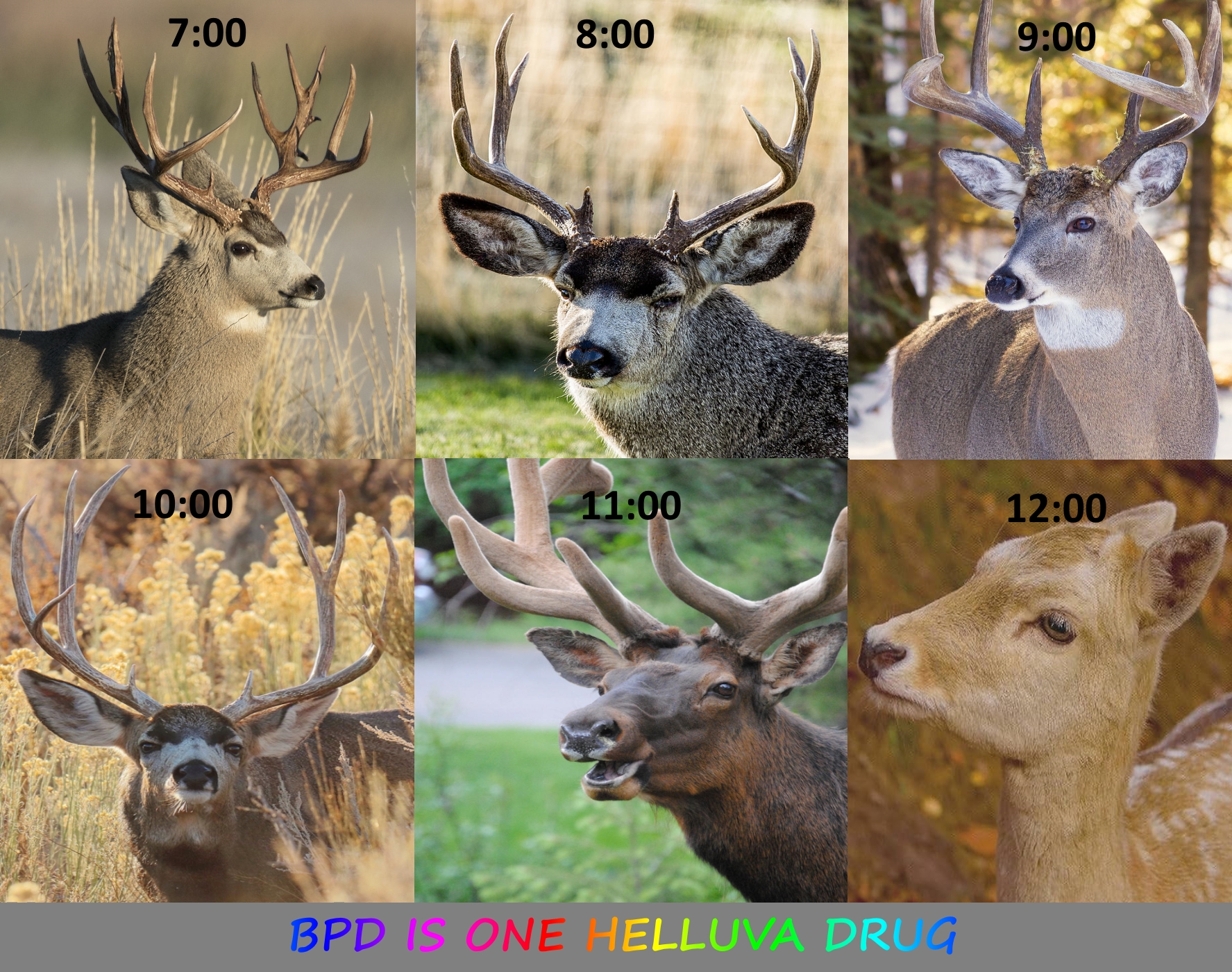
Some psychologists theorize of the existence of BPD subtypes, as the condition doesn't always present itself in this very outwardly manner that people associate with BPD. For example quiet (or discouraged) BPD is a form of the condition where the mood swings all take place in the head of the sufferer, with all the anger being directed at themselves. Quiet BPD is also associated with being extremely scared of rejection, really low self esteem, trying too hard to appease everyone at the expense of their own self Basically quiet BPD is almost impossible to spot from the outside, as you never know what is going on behind those peaceful cute ittle eyes. No need to ask why I know all this.
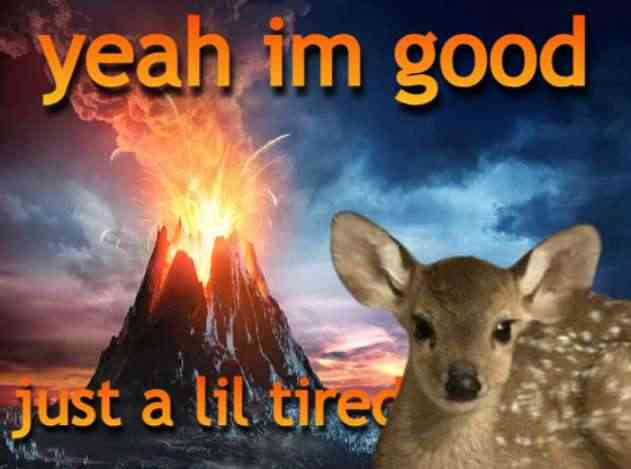
(Self)Treatment Options
Despite being very wise and intelligent creatures, deer weren't equipped or provided with a lot of ways to tackle all these hurdles effectively, their definition of treatment and therapy probably involves just saying "yes there's something wrong", and then going back to eating and napping all day as if they have already done their part and expect things to change on their own.

We don't want to speak ill of our mighty Cosmic Deer who are watching oer us as we speak, but they did not provide deer society with a healthcare system to help them with these very serius issues, so their number one self treatment is always getting high as shit, possibly so high they can forget about how miserable they are even if only for a few minutes.

Because the human healthcare system is unwilling to cooperate with deer they have no other way than to use illegal drugs, downers are a favorite for most deer species, weed and opiates do wonders for them and it's no wonder many deer end up developing addictions.

Whitetails are an exception to the rule, given their natural tweakiness they prefer engaging in stimulants, making them even more alert, perhaps to an extreme level, earning them the title of crackheads of the deer kingdom.
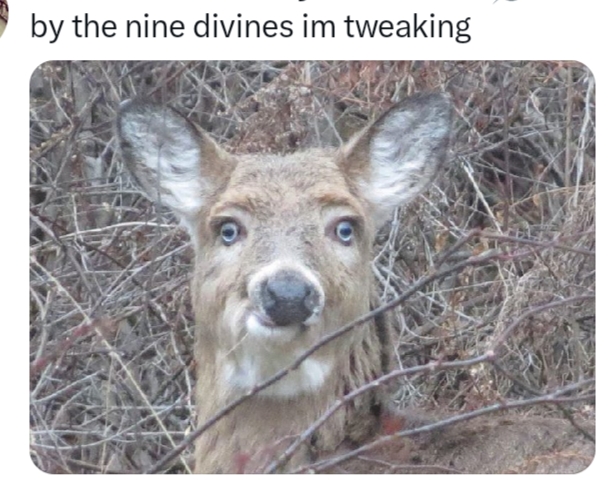
Comfort eating is another common coping mechanism, popularized by the great prophet Mio himself, filling your stomach with garbage helps fill that inner void giving you so much distress, and granting a temporary escape from it. Feelings of shame usually follow the eating, which creates more stress, and leads to even more eating. Mint ice cream, pizzas, Mexican food and burgers are deer's favorite human food when they manage to get their hooves on some, grass doesn't do too much for them, it is functional, but when it comes to drowning your misery with food you need the hard stuff.

Despite their many shortcomings in the field of mental health and healthy coping mechanisms, deer can be proud in knowing that they can always resort to their favorite advanced problem solving technique: RUN.
